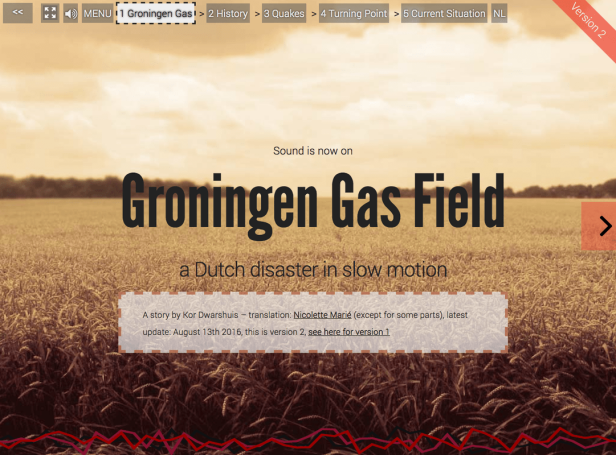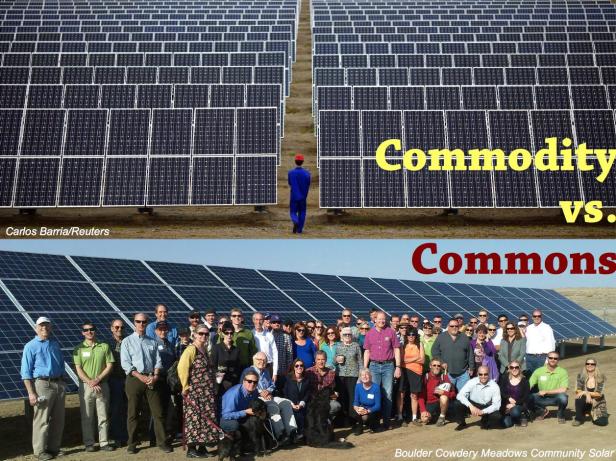To celebrate the beginning of 2017 (some say the end of 2016), I will participate on Saturday, January 7th to a conference in Groningen (The Netherlands) called “a future without the NAM“. The focus will be on the potential remunicipalization of the gas utility (the NAM), which is exploiting the huge gas field under the province of Groningen and presently belongs to Shell and Exxon. The goal of remunicipalizing it would be to stop the gas extraction, which provokes a collapse of the ground and severe damages to houses and infrastructure. I will be intervening in the session on international alternatives and will be presenting the framework of energy as a commons and two examples of remunicipalization processes in Hamburg and Berlin. You can follow the session on the live stream of the Facebook page of the Transnational Institute.
Een toekomst zonder de NAM (A future without the NAM)
January, Saturday 7 at 13:30
Website
Facebook Page
TNI Facebook (for the live stream)
The conference is a very interesting one (and it is not only the geologist in me who speaks!), from several points of view.
The Groningen Gas Field, Dutch disease and extractivism
First of all, the Groningen gas field exploitation has been at the same time a blessing and a curse for the Netherlands: providing cheap and abundant energy to the population but making them dependent on it and cutting on all other sectors. This case has even be described as “the Dutch disease“. It is also the (all too classical) story of a province that should be rich from all the resource but is actually the poorest of the country. Which, as can be seen worldwide, is the story of extractivism from a private operator. The population of the province is left with a collapsing ground (basically, the balloon that is being deflated), thousands of superficial earthquakes that provoke tremendous damages and underground water problems. Discontent is growing, people feel left out, elections are approaching: this is a nasty mix and it is time to act.

See this story telling from Kor Dwarshuis to get more insights
A case for remunicipalisation
The proposal of a consortium of political parties and activists from various horizons (I am always amazed at the consensus power of Dutch politics) is to remunicipalize the NAM (Nederlandse Aardolie Maatschappij – Dutch oil company) in order to regain control over the gas extraction and eventually bring it to zero.
To my opinion, and seen from the commons perspective, it is a good idea: the only way to force the transition out of the gas field is to shortcut the profits and internalize the externalities. This means that as soon as the gas field belongs to the Dutch Government, it will be held responsible and accountable for the damages. Second it means that profits will flow in the State’s pocket, which will create the capacities to finance alternatives. And finally, as we saw already, energy treated as a commons stops the race to maximize the profits towards a fulfillment of people’s needs. It will therefore create good conditions to save energy, which is what is foremost needed.
I also hope that such a proposal might focus the anger and turn it into a positive game changer.

Session and presentation
My talk will take place within the second session “International issues and solutions” , from 13:30 to 15:30.
Purpose: Where are energy production and use democratized? Are there examples where the interests of the people and their safety are paramount? Looking into civil society’s efforts to move beyond gas. Identifying progressive energy proposals and policies abroad and the growing call for energy democracy.
Speakers:
Frida Keiningen, campaigner Food & Water Watch
Cecile Blanchet, researcher Commons Network
Kahra Wayland-Larty, campaigner Global Justice Now
Daniel Chavez, researcher Transnational Institute
Summary of my presentation:
The talk will consist of two parts. I will first introduce the concept of energy as a common good and the reasons as to why it is important to look at energy from that angle. It allows to understand the inherent problems associated with treating energy as a commodity: make profit instead of fulfilling people’s need; reduce our control on energy production and prices; incentivize production (to increase profits) and prevent saving it.
I will then present the two main forms of energy systems that arise when energy is treated as a common good: cooperatives and municipal utilities. I will focus here on the second and will use two examples in Germany: Hamburg and Berlin. In these two cities, people have initiated movements to re-municipalize the energy networks (electricity, gas and heating) that had been fully privatized in the 1990s and 2000. In Hamburg, the referendum was successful and the network have or will be bought back by the municipality and are operated by municipal utilities. Unfortunately, the cooperative model (where users are also decision makers) has been left out of the governance scheme. In Berlin, the referendum failed but a new system of alliances between civil and private partners is developing. New developments are also expected from the red-red-green (SPD-Die Linke-Die Grüne) coalition recently elected, who supports the remunicipalization process and more open governance modes. These two examples are very informative on the combined roles of civil society and the political arena to reach these goals.
I hope that you will follow this session online on the Facebook page of TNI!

